News
Calendar
Deadline for submitting nominations Ammodo Science Award 2023
Laureates Ammodo Science Award 2023 announced
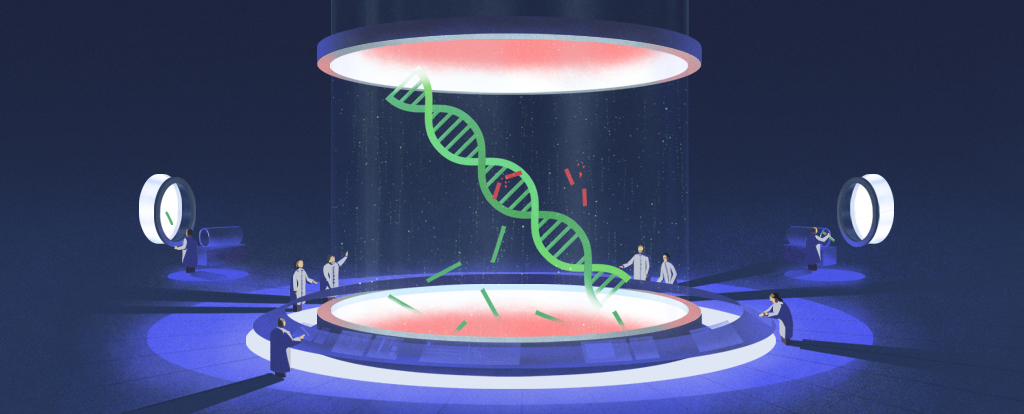
‘We are constantly feeding ideas into the pipeline, some of which will eventually lead to a more successful fight against diseases such as cancer and Alzheimer’s.’
How can fundamental knowledge about DNA repair make a difference for patients with cancer and aging disease?
DNA could rightly be called the molecule of life. It ensures that all processes in our body function properly. We have a lot of it: every microscopic cell in the human body contains as much as two metres of DNA. And if you could put the DNA of all the cells of one human being in a line, such a line would stretch back and forth to the moon 50,000 times. But DNA is vulnerable: it is almost continually being damaged. Merely through breathing, tens of thousands of instances of damage occur in each cell in the body every day – even without additional environmental risk factors such as UV light, cigarette smoke or adverse substances in our food.
In short, keeping all our DNA in good shape is an enormous challenge, and yet it is very important to do so because cells with damaged DNA can mutate and, may for example, develop into tumours. Fortunately, every cell also has all kinds of DNA damage repair mechanisms. For decades the Guardians and Caretakers of the Genome research team at the Erasmus MC in Rotterdam has been focusing on how exactly cells do in fact repair themselves. What is unique about this team is that they study this process, in relation to ageing and cancer, at difference levels of complexity: In relation to cancer and ageing, for example, they are looking atfrom single individual molecules to as well as at complete physiological processes within the cell or the patient.
If you could put the DNA of all the cells of one human being in a line, such a line would stretch back and forth to the moon 50,000 times.
The team’s research has led to many ground breaking discoveries, as a result of which the Rotterdam research group has been at the forefront of this field worldwide for many years. Thus, whereas in the 1980s very little was known at all about DNA repair and which proteins or genes were involved in the process. This changed when the research team identified the very first human gene proven to be involved in repairing DNA damage. In the years that followed, more and more DNA repair genes were discovered. It also became clearer which proteins are involved in DNA repair, what their role is and how they are constructed. Almost all the main factors involved in DNA repair have now been clearly identified and described.
The Rotterdam researchers have also discovered that a malfunctioning DNA repair system can lead not only to mutations and cancer, but also to accelerated ageing. Normally almost all damage to DNA is repaired but if the repair does not succeed for example because the repair system itself breaks down, a cell has only a few options. It may die and must then be replaced with a new cell, or it will remain alive in a damaged state. But if too many cells in a single organ become damaged the functioning of that organ deteriorates, and this is the basis of ageing.
The team carries out fundamental research: their primary focus is on understanding how the processes described above work. The importance of this knowledge for patients is not always immediately clear but the discoveries made have ultimately proven to be extremely relevant to medical practice. For example, they have led to the development of a method that allows doctors to determine whether or not a particular DNA repair system in the tumour cells in an individual patient with breast cancer is working. If it isn’t, the patient can benefit greatly from a drug that shuts down only tumour cells with a defect in their DNA repair system, while leaving healthy cells alone.
A malfunctioning DNA repair system can lead not only to mutations and cancer, but also to accelerated ageing.
Having received the Award, the research group can now take a new and ambitious further step forward with almost all the main elements involved in DNA repair known, the team wants to understand how the different DNA repair processes are interrelated. To be more precise, they want to know how the molecular chaos of random molecular interactionsand dynamic interactions can give rise to can give rise to biological reactions and cellular structuresproperties. It can seem as if everything that happens in a cell is random and yet at the same time, we now know that orderly repair processes can arise from this apparent chaos. How this is possible and how these processes are interconnected is the ‘avant-garde challenge’ that the team is now embarking upon.
While the focus of the team’s research in the 1970s was limited to somatic cell genetics, their multidisciplinary focus is now on the interface of biology, chemistry and physics. Over the years the research group has always been able to bring in the relevant experts and to create the technologies needed for their new research questions. For example, there are researchers who can custom build exactly the microscopes needed to answer their current research questions. Another team member has developed special techniques in electron microscopy which make it possible to look at DNA molecules in higher resolution.
Another special achievement was that in the absence of a science faculty in Rotterdam, the team established and developed its own completely new Nanobiology course, in collaboration with Delft University of Technology (TU Delft). As far back as 2012, the researchers realised that it was going to be important for future success to have team members trained in physics and mathematics in addition to those who specialised in biology. Moreover, new ways of thinking and a new language were needed to understand these sorts of complex molecular interactions. So Nanobiology students are now learning to use concepts from physics and the language of mathematics to fathom the complexity of biology, of great benefit to the team as a whole.
In the longer term, the research the team is doing now may not only lead to enhanced scientific knowledge but may also lead to major advancements in medicine as well.
The outstanding quality of the research team and the ground breaking achievements of its previous research is known worldwide, as well as the importance of their new research project into how biological reactions and cellular properties arise out of random and dynamic molecular interactions. If they can discover how molecular behaviour is disturbed by illness and how it operates when human beings are healthy, then this may lead to doctors being able to intervene in time if something does go wrong. In the longer term, the research the team is doing now may not only lead to enhanced scientific knowledge but may also lead to major advancements in medicine as well, not only in the form of more specifically tailored treatments for patients with cancer, but also of the slowing down or prevention of premature ageing diseases. As the team itself says: “We are constantly feeding ideas into the pipeline, ideas without a predictable application. But we are convinced that some of these ideas will ultimately lead to a more successful fight against diseases such as cancer and Alzheimer’s.
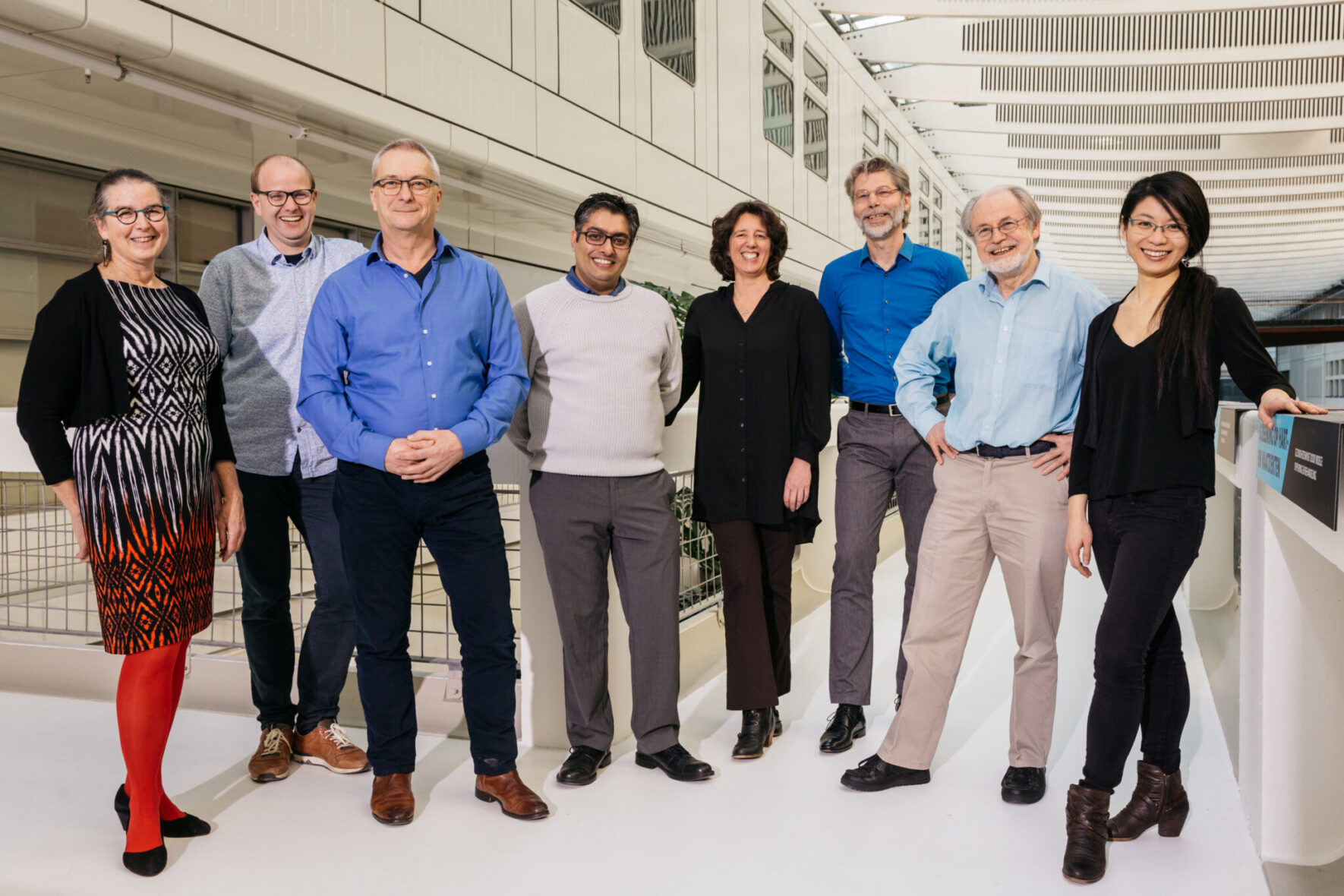
Team members (f.l.t.r.): Claire Wyman, Jurgen Marteijn, Wim Vermeulen, Arnab Ray Chaudhuri, Joyce Lebbink, Roland Kanaar, Jan Hoeijmakers, Miao-Ping Chien.
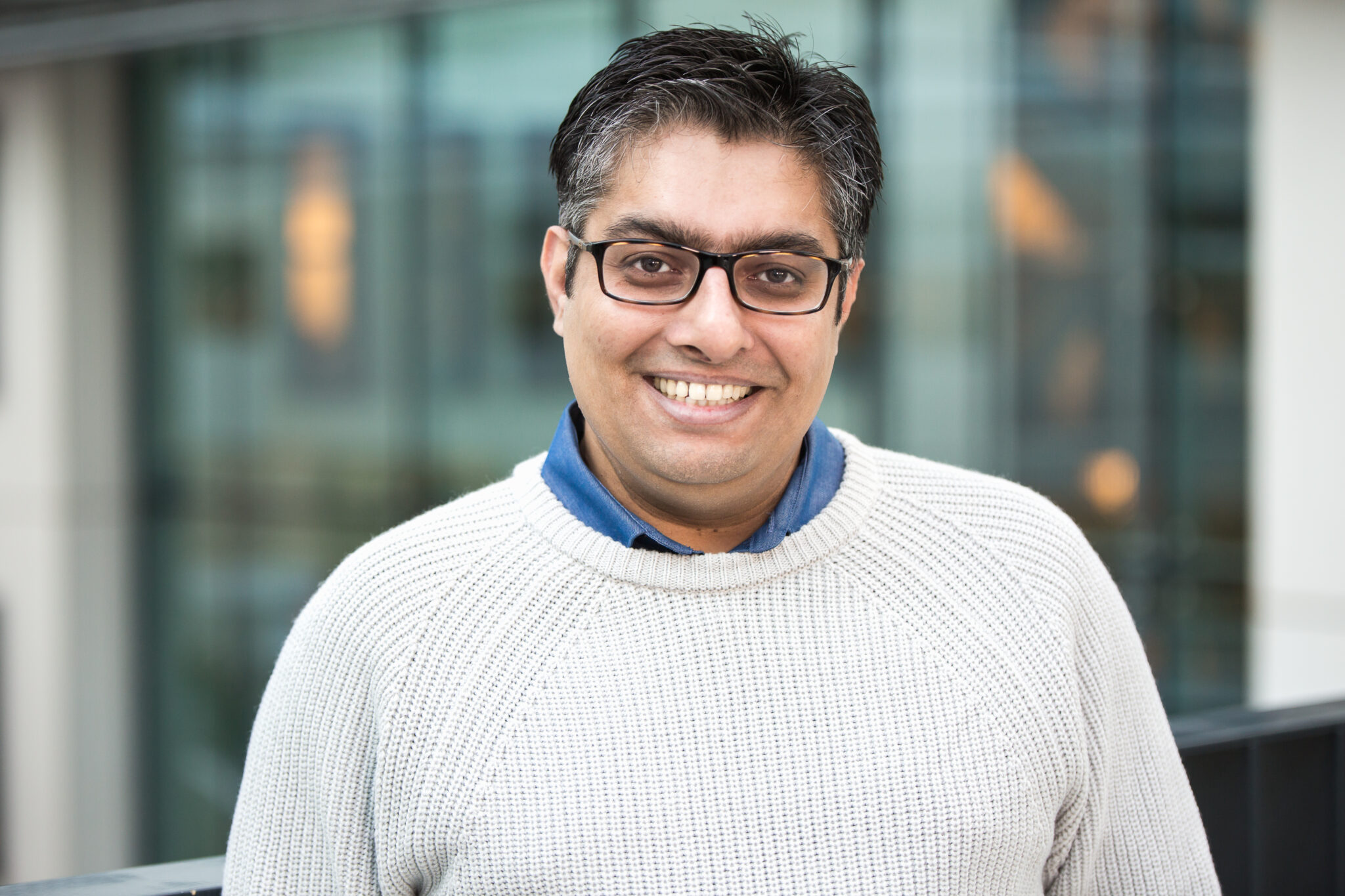
Arnab Ray Chaudhuri
Arnab Ray Chaudhuri (1980) studied Medical Biochemistry at Manipal University, India. He received his PhD from the University of Zurich in 2011 and subsequently worked at the National Cancer Institute, NIH, Bethesda as a post doctoral fellow. He is now a Principal Investigator at the Department of Molecular Genetics at the Erasmus Medical Center, where he studies how structural changes at the level of the DNA replication process maintain the integrity of the genome using a combination of unique, structural and cell biological technologies. He has received several awards, including a long term fellowship from the Human Frontier Science Program, a Prospective Researcher award from Swiss National Science Foundation (SNF) and the EUR Fellowship from Erasmus University Rotterdam.
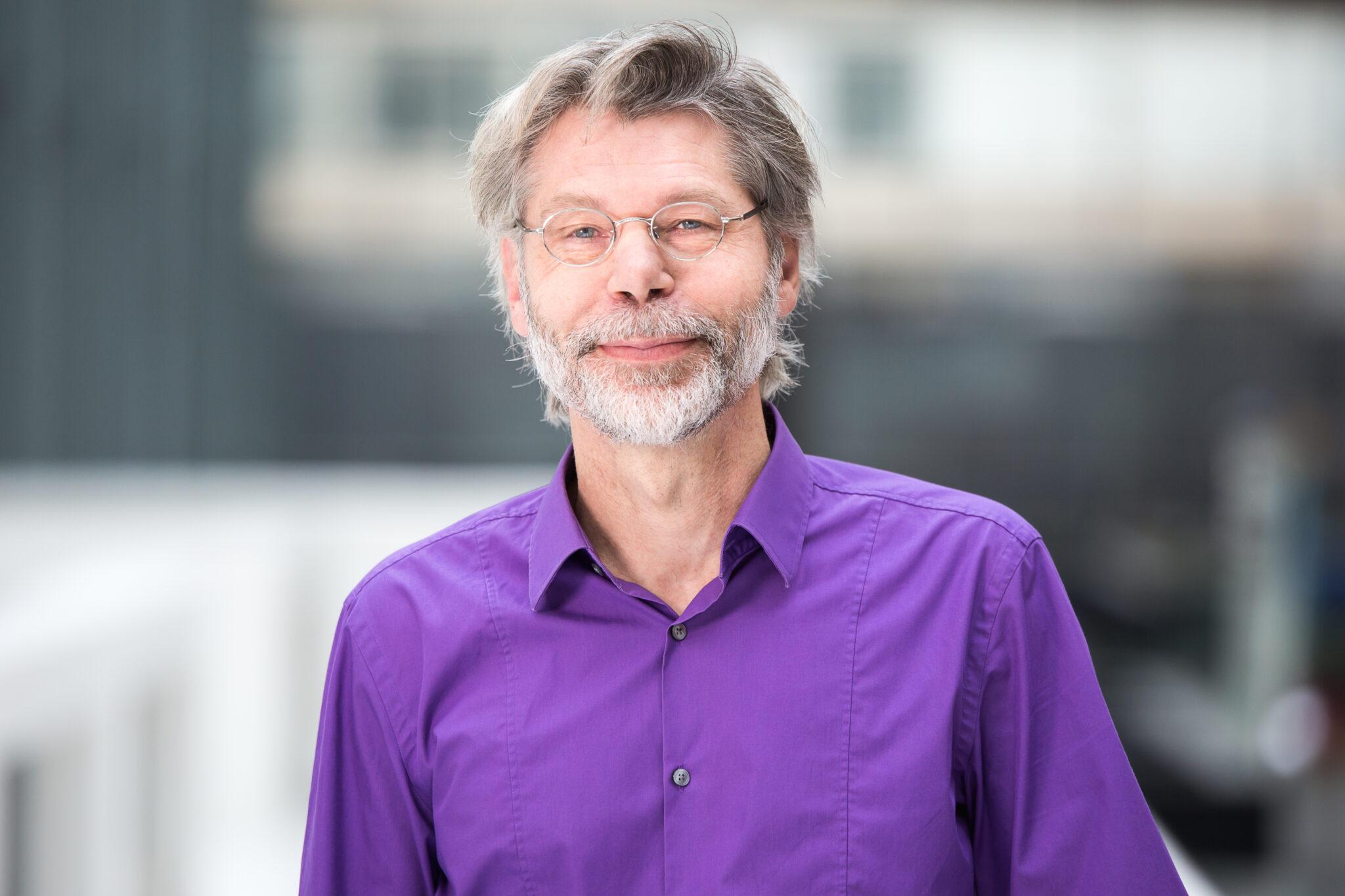
Roland Kanaar
Roland Kanaar (1961) initially studied chemistry at Leiden University before going on to do his PhD research at the University of California, Berkeley and back at Leiden University. He is now Professor of Molecular Genetics and head of the department of the same name at the Erasmus University Medical Centre as well as senior group leader at the Oncode Institute. His team is studying every aspect of how cells repair damaged DNA, from the fundamental question of how molecules are involved in the repair process to how the results can make a difference to the treatment of cancer patients. Kanaar received the Pioneer Award from the Dutch Research Council in 2000. In 2013 he was elected as member of the Royal Netherlands Academy of Arts and Sciences.
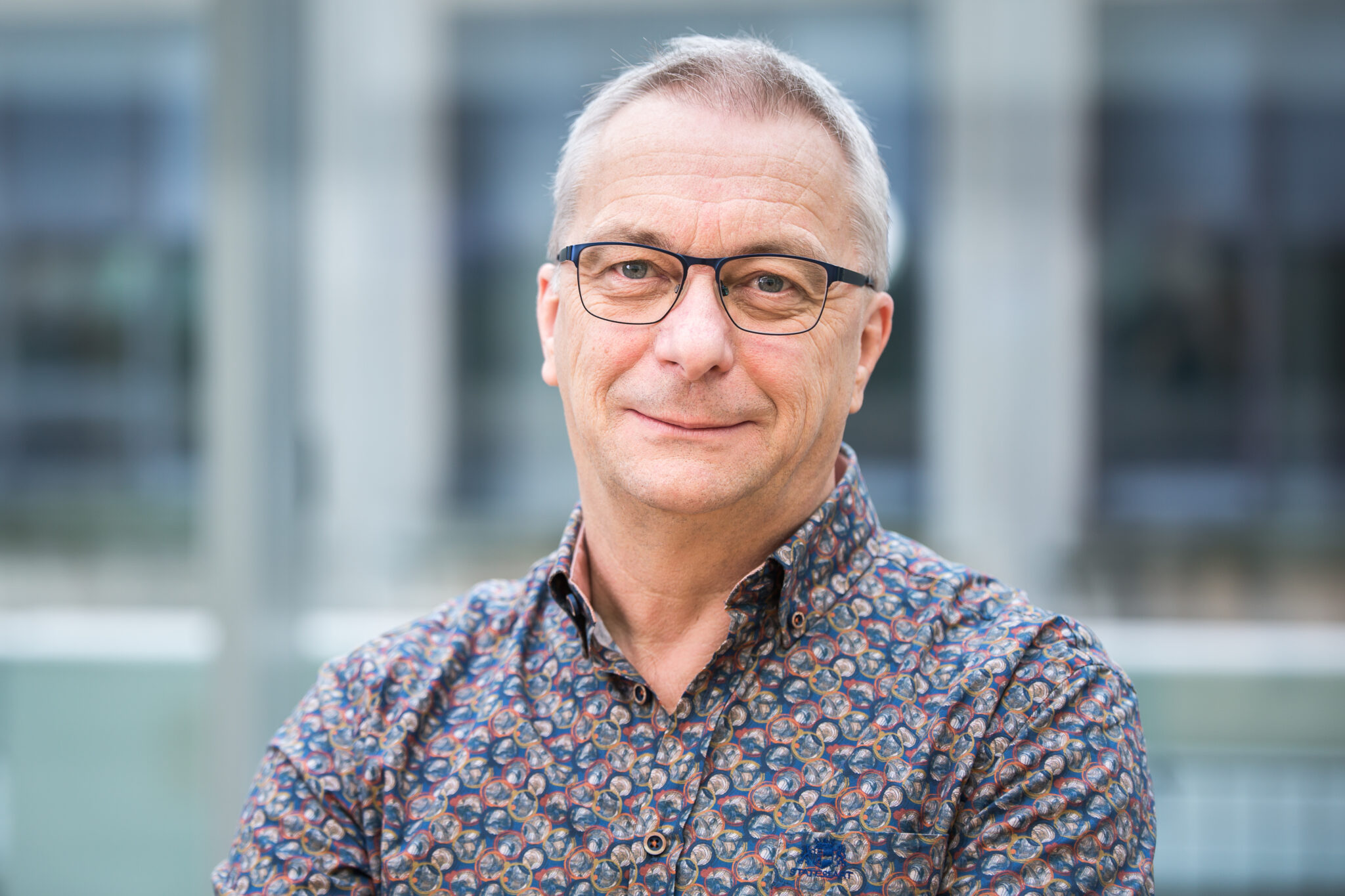
Wim Vermeulen
Wim Vermeulen (1960) was trained as a biochemical engineer at the Van ‘t Hoff Institute in Rotterdam. He later carried out doctoral research on DNA repair-deficient syndromes at Erasmus University Rotterdam (1990-1995). He is currently Professor of Genetic Stability at the Erasmus Medical Center and a Principal Investigator at the Oncode Institute. He received a VIDI grant in 2004 and a European Research Council Advanced Grant in 2013. Vermeulen leads a multidisciplinary international group of researchers who are currently focusing on elucidating the molecular mechanism of ‘nucleotide excision repair’ and the role this process plays in the prevention of cancer and ageing.
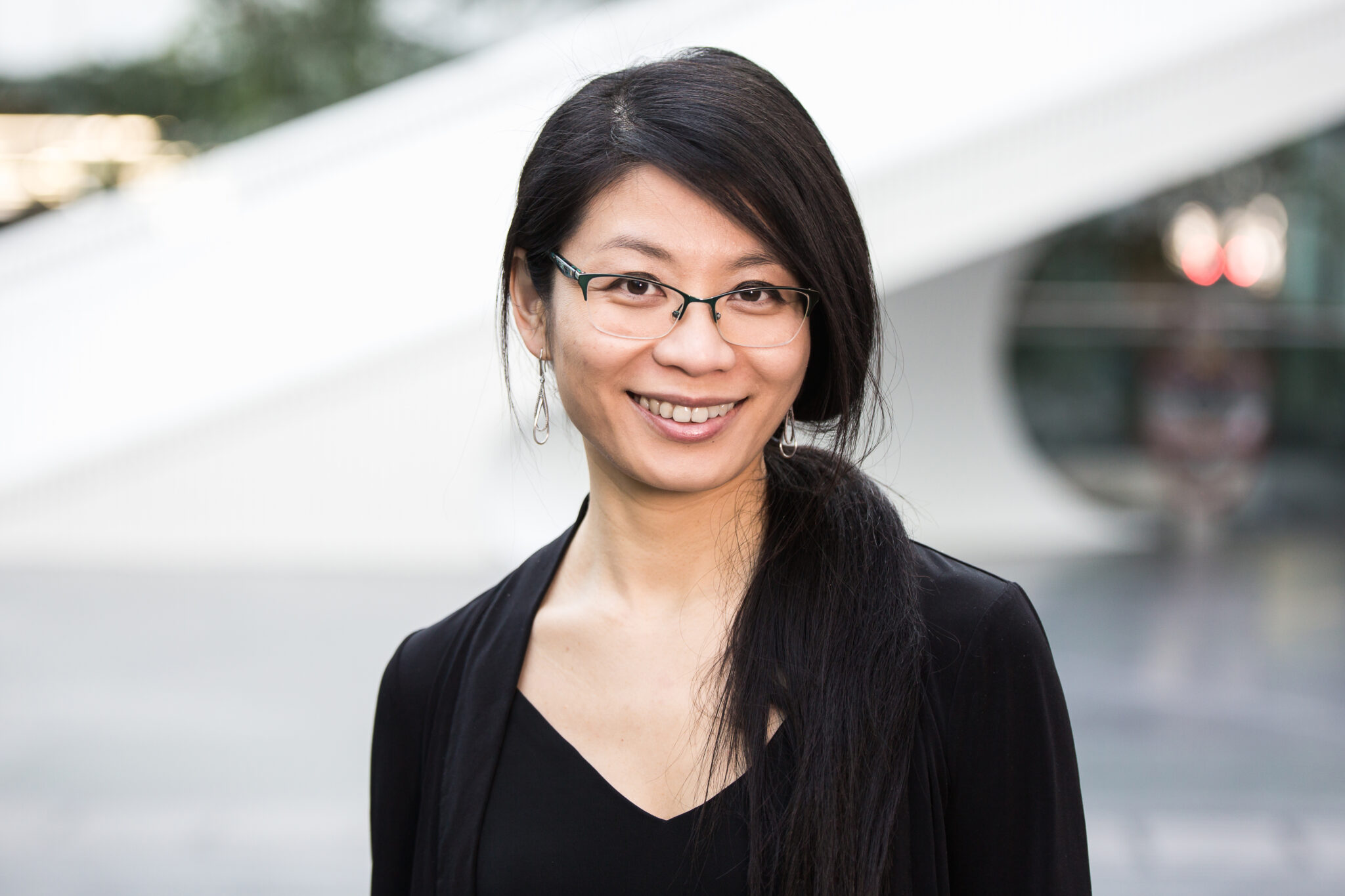
Miao-Ping Chien
Miao-Ping Chien (1981) was awarded her PhD degree in Chemistry and Biochemistry at the University of California, San Diego in 2013, and went to Harvard University for her postdoc, focusing on the development of technology for biology (for which she combined biophysics, computation and optical instrumentation). Chien joined the Erasmus University Medical Center (EMC) as a group leader in 2017. She is currently applying her proprietary optical and single cell technologies to understand the underlying mechanisms of tumor formation. Chien has received several grants and awards, including a NWO Veni grant, an Oncode Institute junior fellowship, a Cancer GenomiCs.nl fellowship, an EMC-Delft convergence grant, an EMC fellowship and an EMC Mrace grant.
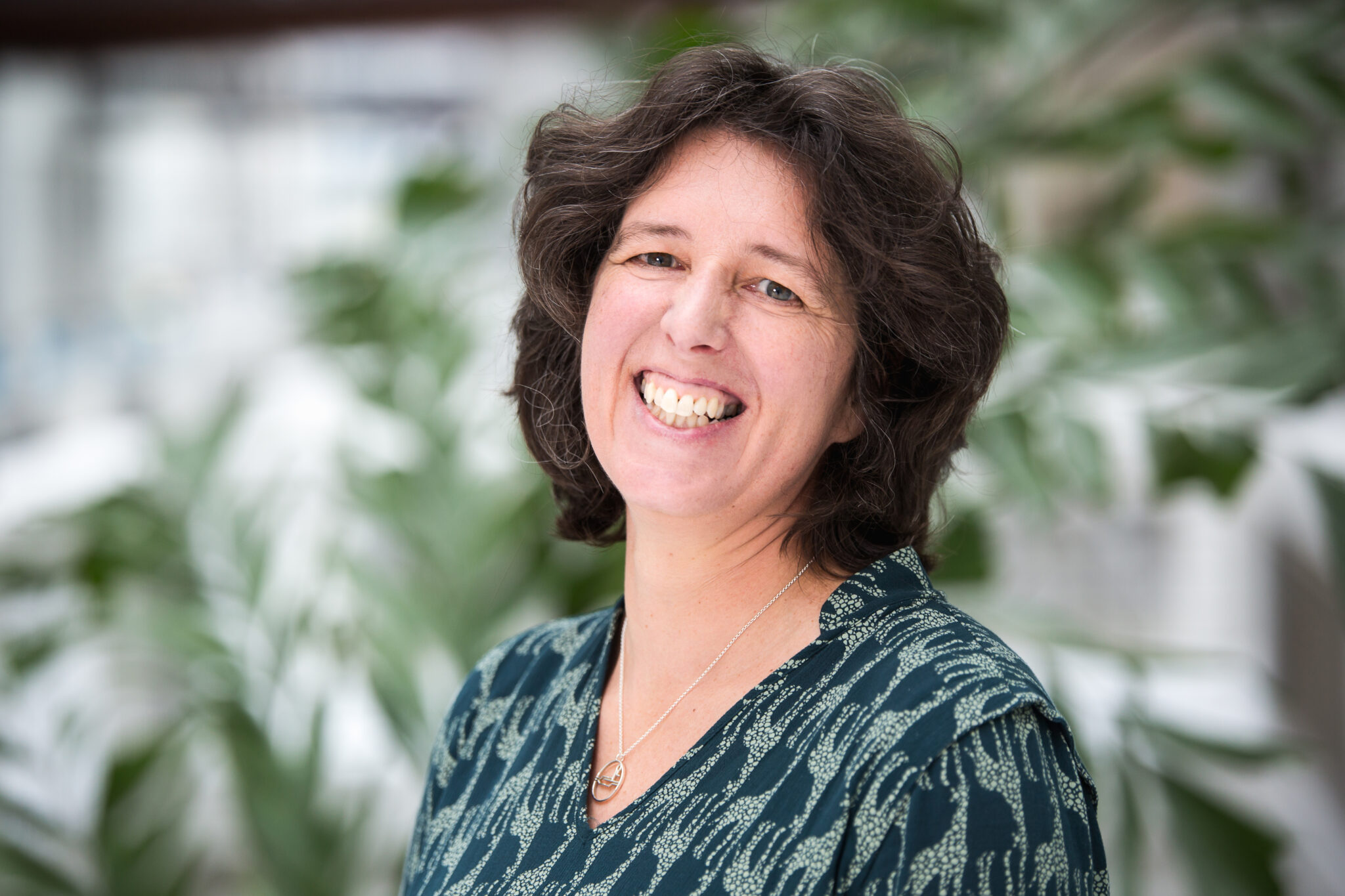
Joyce Lebbink
Joyce Lebbink (1969) studied and went on to receive her PhD in Molecular Sciences at Wageningen University. After carrying out postdoctoral research at the Karolinska Institute in Stockholm and the Dutch Cancer Institute, she is now a senior lecturer at the Erasmus Medical Centre. Her research group studies the molecular mechanism of DNA repair using molecular biological and biochemical techniques and quantitative models. Lebbink is the scientific coordinator of a European PhD training network and has been awarded both EU Marie Curie and NWO VENI and VIDI research grants.

Claire Wyman
Claire Wyman (1958) studied Molecular Biology at the University of California, Berkeley where she was awarded her PhD in 1990. She is currently Professor of Molecular Radiation Biology in the Radiation Oncology department at the Erasmus Medical Center. In collaboration with the Department of Molecular Genetics, her research applies cutting edge microscopy and molecular manipulation techniques to achieve a better understanding of complex genome transactions. Wyman received a VICI grant from the Dutch Research Council (NWO) in 2006. She is a Medical Data professor, with a joint appointment in the department of Bionanoscience at TU Delft. She is a member of many local and national scientific advisory committees and is director of the Nanobiology programme, a collaboration with TU Delft.

Jan Hoeijmakers
Jan Hoeijmakers (1951) studied Molecular Biology at the Catholic University of Nijmegen and received his PhD from the University of Amsterdam. He started research on DNA repair at Erasmus University Rotterdam in 1981 where he discovered that DNA damage is the main cause of ageing and that calorific restriction reduces DNA damage thereby helping to prevent cancer and premature ageing and in general increasing resilience. Hoeijmakers has recently begun Oncode re-search at the Prinses Maxima Centrum (Utrecht) and at the CECAD (Cologne). He has received numerous national and international awards including the Louis Jeantet, Spinoza, Josephine Nefkens, Charles Brupbacher, Olav Thon and KWF research awards. He has twice received an ERC advanced grant and holds a KNAW academy professorship.

Jurgen Marteijn
Jurgen Marteijn (1977) studied Bioprocess Technology at Wageningen University and subsequently received his PhD from Radboud University Nijmegen in 2007. He is currently a senior lecturer at Erasmus MC and group leader at the Oncode Institute, where he uses a combination of advanced microscopic techniques and protein analysis methods to study how cells protect themselves against the DNA damage which disrupts transcription. Marteijn received an Erasmus MC fellow-ship and VENI, VIDI and VICI grants from the Dutch Research Council (NWO).

Arnab Ray Chaudhuri
Arnab Ray Chaudhuri (1980) studied Medical Biochemistry at Manipal University, India. He received his PhD from the University of Zurich in 2011 and subsequently worked at the National Cancer Institute, NIH, Bethesda as a post doctoral fellow. He is now a Principal Investigator at the Department of Molecular Genetics at the Erasmus Medical Center, where he studies how structural changes at the level of the DNA replication process maintain the integrity of the genome using a combination of unique, structural and cell biological technologies. He has received several awards, including a long term fellowship from the Human Frontier Science Program, a Prospective Researcher award from Swiss National Science Foundation (SNF) and the EUR Fellowship from Erasmus University Rotterdam.

Jan Hoeijmakers
Jan Hoeijmakers (1951) studied Molecular Biology at the Catholic University of Nijmegen and received his PhD from the University of Amsterdam. He started research on DNA repair at Erasmus University Rotterdam in 1981 where he discovered that DNA damage is the main cause of ageing and that calorific restriction reduces DNA damage thereby helping to prevent cancer and premature ageing and in general increasing resilience. Hoeijmakers has recently begun Oncode re-search at the Prinses Maxima Centrum (Utrecht) and at the CECAD (Cologne). He has received numerous national and international awards including the Louis Jeantet, Spinoza, Josephine Nefkens, Charles Brupbacher, Olav Thon and KWF research awards. He has twice received an ERC advanced grant and holds a KNAW academy professorship.

Joyce Lebbink
Joyce Lebbink (1969) studied and went on to receive her PhD in Molecular Sciences at Wageningen University. After carrying out postdoctoral research at the Karolinska Institute in Stockholm and the Dutch Cancer Institute, she is now a senior lecturer at the Erasmus Medical Centre. Her research group studies the molecular mechanism of DNA repair using molecular biological and biochemical techniques and quantitative models. Lebbink is the scientific coordinator of a European PhD training network and has been awarded both EU Marie Curie and NWO VENI and VIDI research grants.

Wim Vermeulen
Wim Vermeulen (1960) was trained as a biochemical engineer at the Van ‘t Hoff Institute in Rotterdam. He later carried out doctoral research on DNA repair-deficient syndromes at Erasmus University Rotterdam (1990-1995). He is currently Professor of Genetic Stability at the Erasmus Medical Center and a Principal Investigator at the Oncode Institute. He received a VIDI grant in 2004 and a European Research Council Advanced Grant in 2013. Vermeulen leads a multidisciplinary international group of researchers who are currently focusing on elucidating the molecular mechanism of ‘nucleotide excision repair’ and the role this process plays in the prevention of cancer and ageing.

Miao-Ping Chien
Miao-Ping Chien (1981) was awarded her PhD degree in Chemistry and Biochemistry at the University of California, San Diego in 2013, and went to Harvard University for her postdoc, focusing on the development of technology for biology (for which she combined biophysics, computation and optical instrumentation). Chien joined the Erasmus University Medical Center (EMC) as a group leader in 2017. She is currently applying her proprietary optical and single cell technologies to understand the underlying mechanisms of tumor formation. Chien has received several grants and awards, including a NWO Veni grant, an Oncode Institute junior fellowship, a Cancer GenomiCs.nl fellowship, an EMC-Delft convergence grant, an EMC fellowship and an EMC Mrace grant.

Roland Kanaar
Roland Kanaar (1961) initially studied chemistry at Leiden University before going on to do his PhD research at the University of California, Berkeley and back at Leiden University. He is now Professor of Molecular Genetics and head of the department of the same name at the Erasmus University Medical Centre as well as senior group leader at the Oncode Institute. His team is studying every aspect of how cells repair damaged DNA, from the fundamental question of how molecules are involved in the repair process to how the results can make a difference to the treatment of cancer patients. Kanaar received the Pioneer Award from the Dutch Research Council in 2000. In 2013 he was elected as member of the Royal Netherlands Academy of Arts and Sciences.

Jurgen Marteijn
Jurgen Marteijn (1977) studied Bioprocess Technology at Wageningen University and subsequently received his PhD from Radboud University Nijmegen in 2007. He is currently a senior lecturer at Erasmus MC and group leader at the Oncode Institute, where he uses a combination of advanced microscopic techniques and protein analysis methods to study how cells protect themselves against the DNA damage which disrupts transcription. Marteijn received an Erasmus MC fellow-ship and VENI, VIDI and VICI grants from the Dutch Research Council (NWO).

Claire Wyman
Claire Wyman (1958) studied Molecular Biology at the University of California, Berkeley where she was awarded her PhD in 1990. She is currently Professor of Molecular Radiation Biology in the Radiation Oncology department at the Erasmus Medical Center. In collaboration with the Department of Molecular Genetics, her research applies cutting edge microscopy and molecular manipulation techniques to achieve a better understanding of complex genome transactions. Wyman received a VICI grant from the Dutch Research Council (NWO) in 2006. She is a Medical Data professor, with a joint appointment in the department of Bionanoscience at TU Delft. She is a member of many local and national scientific advisory committees and is director of the Nanobiology programme, a collaboration with TU Delft.

Arnab Ray Chaudhuri
Arnab Ray Chaudhuri (1980) studied Medical Biochemistry at Manipal University, India. He received his PhD from the University of Zurich in 2011 and subsequently worked at the National Cancer Institute, NIH, Bethesda as a post doctoral fellow. He is now a Principal Investigator at the Department of Molecular Genetics at the Erasmus Medical Center, where he studies how structural changes at the level of the DNA replication process maintain the integrity of the genome using a combination of unique, structural and cell biological technologies. He has received several awards, including a long term fellowship from the Human Frontier Science Program, a Prospective Researcher award from Swiss National Science Foundation (SNF) and the EUR Fellowship from Erasmus University Rotterdam.

Miao-Ping Chien
Miao-Ping Chien (1981) was awarded her PhD degree in Chemistry and Biochemistry at the University of California, San Diego in 2013, and went to Harvard University for her postdoc, focusing on the development of technology for biology (for which she combined biophysics, computation and optical instrumentation). Chien joined the Erasmus University Medical Center (EMC) as a group leader in 2017. She is currently applying her proprietary optical and single cell technologies to understand the underlying mechanisms of tumor formation. Chien has received several grants and awards, including a NWO Veni grant, an Oncode Institute junior fellowship, a Cancer GenomiCs.nl fellowship, an EMC-Delft convergence grant, an EMC fellowship and an EMC Mrace grant.

Jan Hoeijmakers
Jan Hoeijmakers (1951) studied Molecular Biology at the Catholic University of Nijmegen and received his PhD from the University of Amsterdam. He started research on DNA repair at Erasmus University Rotterdam in 1981 where he discovered that DNA damage is the main cause of ageing and that calorific restriction reduces DNA damage thereby helping to prevent cancer and premature ageing and in general increasing resilience. Hoeijmakers has recently begun Oncode re-search at the Prinses Maxima Centrum (Utrecht) and at the CECAD (Cologne). He has received numerous national and international awards including the Louis Jeantet, Spinoza, Josephine Nefkens, Charles Brupbacher, Olav Thon and KWF research awards. He has twice received an ERC advanced grant and holds a KNAW academy professorship.

Roland Kanaar
Roland Kanaar (1961) initially studied chemistry at Leiden University before going on to do his PhD research at the University of California, Berkeley and back at Leiden University. He is now Professor of Molecular Genetics and head of the department of the same name at the Erasmus University Medical Centre as well as senior group leader at the Oncode Institute. His team is studying every aspect of how cells repair damaged DNA, from the fundamental question of how molecules are involved in the repair process to how the results can make a difference to the treatment of cancer patients. Kanaar received the Pioneer Award from the Dutch Research Council in 2000. In 2013 he was elected as member of the Royal Netherlands Academy of Arts and Sciences.

Joyce Lebbink
Joyce Lebbink (1969) studied and went on to receive her PhD in Molecular Sciences at Wageningen University. After carrying out postdoctoral research at the Karolinska Institute in Stockholm and the Dutch Cancer Institute, she is now a senior lecturer at the Erasmus Medical Centre. Her research group studies the molecular mechanism of DNA repair using molecular biological and biochemical techniques and quantitative models. Lebbink is the scientific coordinator of a European PhD training network and has been awarded both EU Marie Curie and NWO VENI and VIDI research grants.

Jurgen Marteijn
Jurgen Marteijn (1977) studied Bioprocess Technology at Wageningen University and subsequently received his PhD from Radboud University Nijmegen in 2007. He is currently a senior lecturer at Erasmus MC and group leader at the Oncode Institute, where he uses a combination of advanced microscopic techniques and protein analysis methods to study how cells protect themselves against the DNA damage which disrupts transcription. Marteijn received an Erasmus MC fellow-ship and VENI, VIDI and VICI grants from the Dutch Research Council (NWO).

Wim Vermeulen
Wim Vermeulen (1960) was trained as a biochemical engineer at the Van ‘t Hoff Institute in Rotterdam. He later carried out doctoral research on DNA repair-deficient syndromes at Erasmus University Rotterdam (1990-1995). He is currently Professor of Genetic Stability at the Erasmus Medical Center and a Principal Investigator at the Oncode Institute. He received a VIDI grant in 2004 and a European Research Council Advanced Grant in 2013. Vermeulen leads a multidisciplinary international group of researchers who are currently focusing on elucidating the molecular mechanism of ‘nucleotide excision repair’ and the role this process plays in the prevention of cancer and ageing.

Claire Wyman
Claire Wyman (1958) studied Molecular Biology at the University of California, Berkeley where she was awarded her PhD in 1990. She is currently Professor of Molecular Radiation Biology in the Radiation Oncology department at the Erasmus Medical Center. In collaboration with the Department of Molecular Genetics, her research applies cutting edge microscopy and molecular manipulation techniques to achieve a better understanding of complex genome transactions. Wyman received a VICI grant from the Dutch Research Council (NWO) in 2006. She is a Medical Data professor, with a joint appointment in the department of Bionanoscience at TU Delft. She is a member of many local and national scientific advisory committees and is director of the Nanobiology programme, a collaboration with TU Delft.